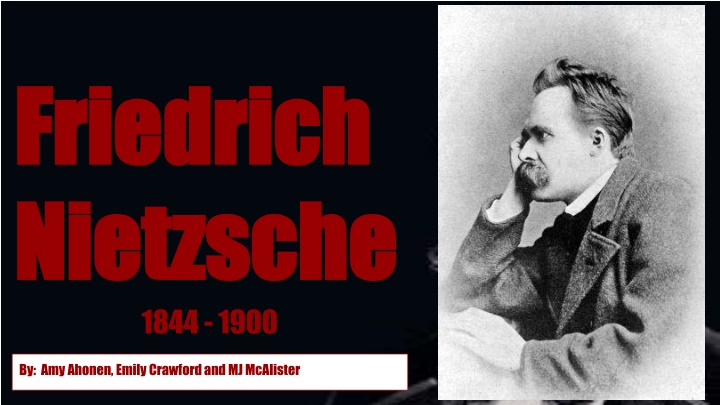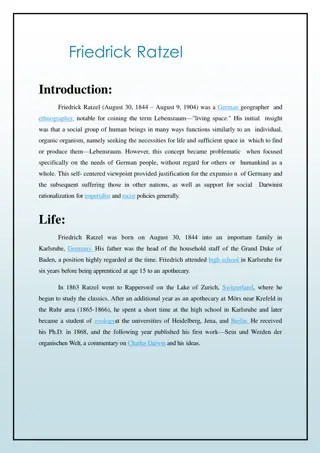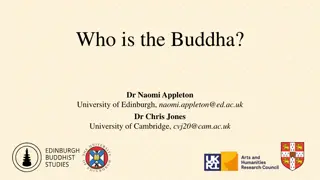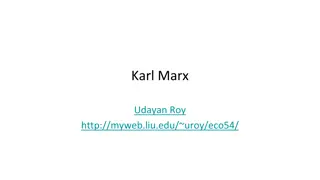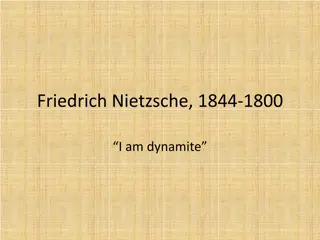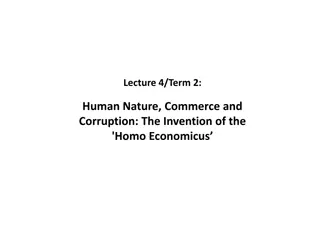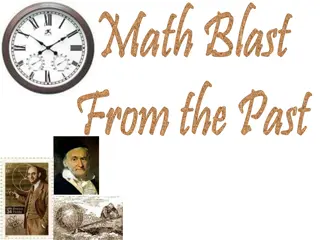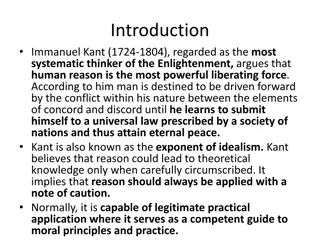Friedrich Nietzsche - Philosopher and Thinker Extraordinaire
Friedrich Nietzsche, a renowned German philosopher, cultural critic, and essayist, challenged traditional Western morality and Christian beliefs. He advocated for personal reflection in philosophy, rejected societal norms, and introduced existentialist ideas that emphasized individual freedom and responsibility. Nietzsche's ethical views centered on the concept of living without moral limits in a godless society. His provocative ideas continue to shape modern philosophical discourse.
Download Presentation

Please find below an Image/Link to download the presentation.
The content on the website is provided AS IS for your information and personal use only. It may not be sold, licensed, or shared on other websites without obtaining consent from the author.If you encounter any issues during the download, it is possible that the publisher has removed the file from their server.
You are allowed to download the files provided on this website for personal or commercial use, subject to the condition that they are used lawfully. All files are the property of their respective owners.
The content on the website is provided AS IS for your information and personal use only. It may not be sold, licensed, or shared on other websites without obtaining consent from the author.
E N D
Presentation Transcript
Friedrich Friedrich Nietzsche Nietzsche 1844 -1900 By: Amy Ahonen, Emily Crawford and MJ McAlister
Birth -Higher Education Timeline Friedrich Wihelm Nietzsche was a cultural critic, essayist, and philosopher from Germany. Born October 15, 1844 in Rocken, Germany After his father and brother died he was the only man in the house therefore he took a leadership position early on Later on (the date was not specified) Nietzsche was accepted into Shulpforta (the best preparatory school in the area) where he learned humanities, theology, and classical languages.
Birth -Higher Education Timeline 1864- Started at the University of Bonn gave up theology and went on to study classical languages on a deeper level and get a career in Physiology. 1865- Started at the University of leipzig and devoted himself to studying. 1868- By 1868 he was being promoted as a phenomenon in classical scholarship (ieput.edu). 1869-became a professor of Greek language and literature at the University of Basel in Switzerland.
Spiritual Point of View Nietzsche believed that philosophy should deeply reflect one s personal concerns. He said that traditional Western morality of philosophy and Christianity in particular opposes a happy life. He believed that good designated only the people with political or social power to live by the force of will He believed that evil referred to forceful action that would be praised. This idea was influenced by slavery.
Existential Point of View Nietzsche s Existential view said basically do what you want You have no responsibility to anyone to do what they say to be your own superman Nietzsche helped create the ideas of existentialism by wondering why we in fact are on the earth when we have no one to give us any moral basis Citation: By Rejecting Faith, This Superman and His Ideal Society. "Friedrich Nietzsche Thus Spake the Radical Individual." Existential Primer: Friedrich Nietzsche. N.p., n.d. Web. 02 Oct. 2016.
Ethical Point of View Nietzsche ethical view was that each individual would live a life without false limits of moral responsibilities He believed that because there was no God that you were not held to a moral standard Nietzsche s famous quote God is dead speaks to the fact that he believed that in a society it limits your potential to achieve greatness Citation: Kemerling Garth Nietzsche. N.p., 12 Nov. 2011. Web. 02 Oct. 2016
How was he influenced by other philosophers? Nietzsche was mainly influenced by philosopher Arthur Schopenhauer and composer Richard Wagner. Arthur Schopenhauer was a German philosopher who was an atheist that believed that the world was essentially irrational. He believed that no matter how much people tried human beings had no way to alter the degree of misery that they experience, and that trying to end suffering only made it worse. Nietzsche had always admired Richard Wagner s music. The two of them eventually became close friends, for they had a lot in common. Both despised their middle class society in which they lived; both had visions of its destruction by the using floods of blood and its replacement by a society in which godlike heroes were in control.
Bibliography "Internet Encyclopedia of Philosophy." Internet Encyclopedia of Philosophy. N.p., n.d. Web. 03 Oct. 2016. "Friedrich Nietzsche Thus Spake the Radical Individual." Existential Primer: Friedrich Nietzsche. N.p., n.d. Web. 02 Oct. 2016. Kemerling Garth Nietzsche. N.p., 12 Nov. 2011. Web. 02 Oct. 2016
"Nietzsche." Bio.com. A&E Networks Television, n.d. Web. 03 Oct. 2016. Ryan, Alan. "The Will to Madness." NY Times. N.p., 24 Jan. 1999. Web. 30 Sept. 2016. Wicks, Robert. "Friedrich Nietzsche." Stanford University. Stanford University, 30 May 1997. Web. 03 Oct. 2016.
